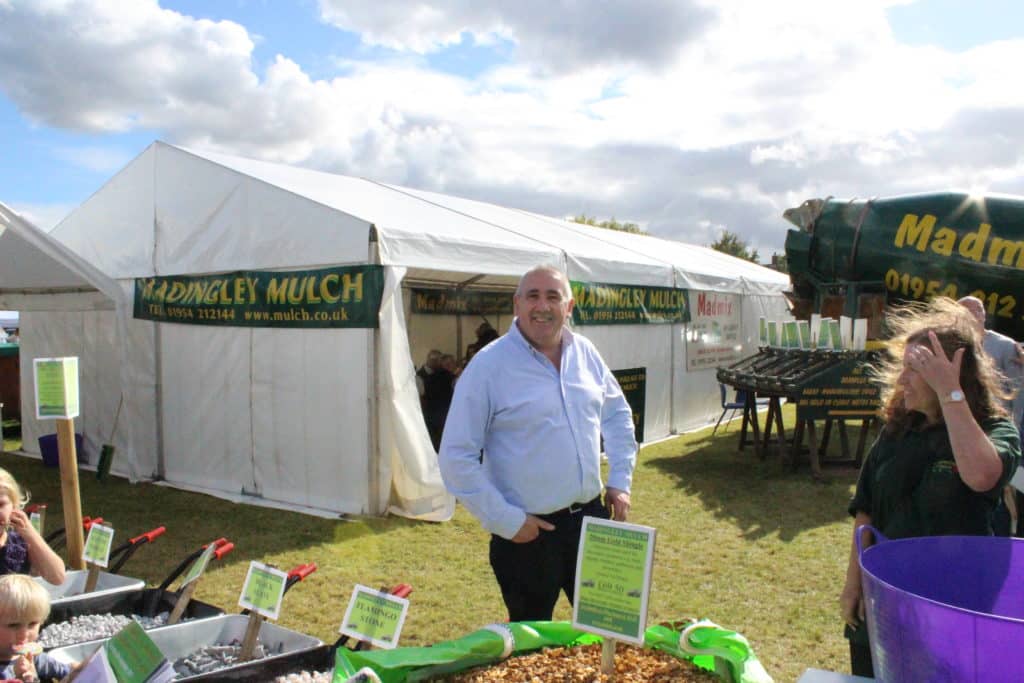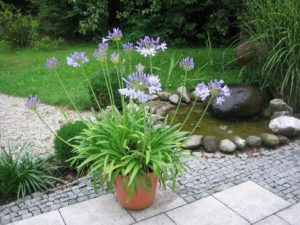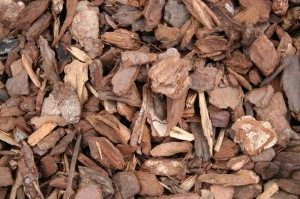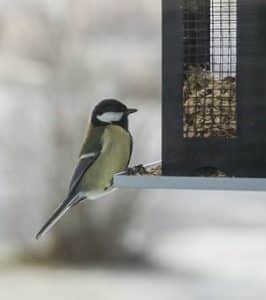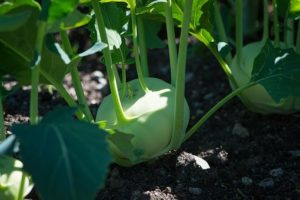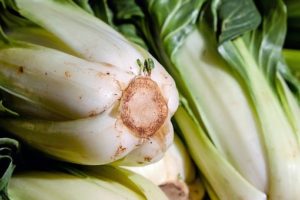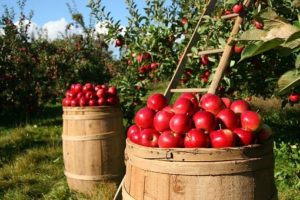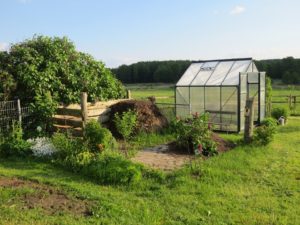Gransden Show – Thanks to All Our Visitors!
The Gransden Show near Cambridge is an event we really look forward to every year, and this year’s show was a great success, with sunny weather adding to the atmosphere. Many thanks to everyone who came along to our stand – it was great to meet you! Pictured above are Chairman Derek Footman (right) and CEO Steve Lunn at the Show.
Our varied display included some of our most popular products, such as our specialist soil conditioners Denise’s Delight, Tony’s Tonic, and Black Fen Soil. We ran our stand together with our sister company Madmix, who brought along one of their concrete mixers.
Every visitor to the stand received a £5 voucher and we enjoyed welcoming our clients to our hospitality tent for buffet lunches, coffee, drinks and afternoon tea. We also had a lucky dip to raise money for Addenbrooke’s Charitable Trust.
Visitors could examine samples of our sands, gravels, stones and base materials, to get an idea of what we have to offer – ranging from black slate to flamingo stone and gold shingle.
We also really enjoyed looking at other people’s stands and at the great range of attractions at this year’s show. One of the main attractions was the falconry display, including owls. We also loved seeing all the livestock, including the horses, dogs, donkeys, goats, sheep and cattle, as well as the vintage vehicles, cookery and craft displays and so much more.
Now it’s time to pack away our stand, but we are already looking forward to taking part again next year!
Looking Forward to the Gransden Show
It’s nearly time for the annual Gransden Show – a major fixture in Cambridgeshire’s calendar which we at Madingley Mulch love to support.
Our staff are already hard at work preparing our stand for the event, which takes place on Saturday, September 30. It always draws large crowds and this year promises to be no exception, with a packed programme of events on offer throughout the day.
As garden mulch suppliers based locally near Cambridge, we have strong links with the show, and have exhibited there for a number of years. In 2015 our Indian sandstone paving display helped us win the trophy for the show’s best large trade stand.
We are looking forward to welcoming you at our stand, with £5 vouchers handed to all visitors. Our friendly, professional staff will be able to advise you about all the wide range of gardening products we stock, from soil conditioners and compost to decorative stones to paving slabs to fencing and turf, so pop along and visit us!
Organised by the Gransden and District Agricultural Society, this year will be the 115th show. Originally a ploughing and drainage competition, the show was officially founded in 1891 and the list of events expanded to include some of the agriculture and livestock classes which are still popular today.
This year’s show promises to be bigger and better than ever. It will include the core classes of cattle, including some rare breed categories, plus sheep and pigs. There will be plenty of fun for all the family as attractions will include a Punch and Judy Show and the first ever donkey display. This year will also see the show’s first poultry classes.
Entry will be £10 for adults, £5 for 11 to 18-year-olds and accompanied under-11s will be admitted free. The gates to the show, on Caxton Road, Great Gransden, will open at 9am. To find out more about the show, click on the link.
How to Create a Low-Maintenance Garden
However keen a gardener you are, a lack of time or mobility may prevent you from spending as much time as you want tending to your plants.
Madingley Mulch supplies a range of products which will cut down on the amount of work your garden requires, from paving slabs to landscape bark. We provide garden supplies to horticulturalists and gardeners in areas including Cambridgeshire, Essex, Suffolk, Hertfordshire and Bedfordshire.
Here is our guide to how to create a low-maintenance garden, while at the same time ensuring that it still looks good.
Design Considerations
You can cut down on a lot of the heavy-duty work involved in running a garden by clever use of space. Make sure the plots which will need more work are closest either to the house or the garden shed where the tools are kept. Don’t have a number of small areas with lots of different types of plants in each of them. Features such as an underground irrigation system can help reduce the amount of time you spend watering your plants.
Lay Down Stone Chippings
One popular solution to create a low-maintenance garden is to remove the lawn altogether and replace it with gravel placed over a weed-suppressing membrane. Alternatively, the lawn area can be made smaller so that mowing is less of a chore.
Like mulch, shingle and stone chippings can also help to suffocate weeds and help with the soil drainage. They don’t need any watering or replacing and can help give a much clearer definition to your garden. You can also lay down bigger stones like pebbles and cobbles which form a distinctive landscape feature, are durable and long-lasting, and look just as good in the wet as the dry.
Madingley Mulch supplies a wide range of decorative stone chippings, including gravel, shingle and granite, as well as pebbles and cobbles drawn from beaches in Kent and Scotland. We also stock slate chippings, which look good in gardens with hard landscape features.
Use Barks and Mulch
Spreading a mulch over the soil can help suppress weed growth and retain moisture in the soil, so it is doubly beneficial as it cuts down on the amount of watering and weeding you need to do. Mulches can look attractive in themselves, particularly ones like pine bark chippings which Madingley Mulch sell. Although the mulch will eventually need replacing, larger chips like our landscape bark can cover large areas and will take longer to decompose and be fully absorbed into the soil.
Edging and Paving
Edging stones mean you don’t have to spend a long time trimming the edge of your grass for the perfect finish. Also, although patios and paths may require a lot of initial work, once they are laid, then you have years of not having to worry about them and you can use the time saved to enjoy the rest of your garden.
We supply different varieties of paving slabs, depending on the look and texture you are after. Our kerb edging stones are ideal for use on pathways and drives as well as garden borders.
Choose the Right Sort of Plants
Make sure you choose plants which are suitable for your soil, and so will need the minimum amount of care. Try to grow shrubs which require much less maintenance, or are slower-growing, rather than lots of small container pots with different plants. Shrubs like rhododendrons in particular will fill up a lot more space in the garden; you can plant them through a weed-suppressing membrane.
Madingley Mulch provides a wide variety of products which can help make your life easier in the garden. Based in Cambridge, we deliver edging stones, paving slabs and landscape bark in districts including Saffron Waldon and the surrounding area in Essex, as well as Royston, Huntingdon, Ely and Newmarket.
If you would like advice on how to make your garden easier to maintain, then our friendly staff will be happy to talk to you. We can arrange free delivery of all our products to all addresses within 15 miles of our base.
Top Tips on Preserving Moisture in Your Garden
Keeping your garden’s plants healthy can be a challenge. Not only do they compete with weeds for their valuable nutrients, but they also may have to cope with a dry summer when water can be at a premium and hosepipe bans are often brought in.
Madingley Mulch supplies a range of products which will help with moisture retention, from soil conditioners and composts to bark chips, for gardens in Hertfordshire, Bedfordshire, Essex and Suffolk as well as Cambridgeshire. Here are our five top tips on ways to keep moisture in your garden.
Keep on Top of Weeding
Weeds can not only be unsightly, but can rob your plants and garden of valuable moisture and nutrients. So make sure you don’t allow them to thrive. How you combat them depends on the type of weeds you are dealing with. You can remove annual weeds such as chickweed with a hoe, and perennial weeds like dandelions with a fork. Weedkiller is an option for the most stubborn of unwanted invaders, but you can also use a variety of organic materials, as described below.
Use a Mulch
Mulches work by giving the soil a protective covering. They decompose over time, releasing valuable nutrients into the earth, and, as they effectively suffocate the weeds, are a particularly useful tool for retaining moisture in your garden. Bark, chippings are particularly good at trapping any moisture. We supply a wide variety of bark mulch products, such as composted, landscape and premium bark for gardens.
Improve the Soil
Garden compost can help break down heavier soils as well as boosting moisture retention. Soil conditioners will also help improve the health of the ground as well as the look of what grows on top of it.
Madingley sell a range of conditioners and composts which will help keep your soil in fine health. Denise’s Delight, available exclusively from us, consists of Black Fen soil and well-rotted horse manure plus humus, plant nutrients and wood shavings.
Choose the Right Sort of Plants
Certain types of plants retain their moisture better than others. For instance, if you have a vegetable garden, then cabbages, leeks, parsnips and carrots require very little attention.
Certain perennials like rosemary and sage, and shrubs like lavender and hebe, will also do well in dry summers. In fact, any plants with silver or grey-green leaves tend to reflect the sun’s rays better and so won’t need such regular watering.
Give Nature a Helping Hand
There are other ways in which nature can be given a helping hand. Installing a water butt will help keeping your garden’s moisture levels topped up, and you can also use so-called ‘grey water’ recycled from kitchens and bathrooms. This is particularly useful if there is a hosepipe ban in force, although it is best to avoid using it on your vegetable patch or anything in your garden you might end up eating. You can also use water-retaining granules, which are particularly useful in cutting the number of times that thirsty hanging baskets and potted plants need to be watered.
Madingley Mulch, based on the outskirts of Cambridge, stock a wide variety of products which will keep your gardens water levels high, even in East Anglia’s relatively dry climate. Soil improver, mulch, mushroom and loam based compost and bark chips and are among our range of supplies. We deliver to towns including Royston in Hertfordshire and Saffron Walden in Essex, as well as Huntingdon and Ely in Cambridgeshire and Newmarket in Suffolk. Click on the link to see our full range of products.
Ideas to Make Your Garden Look Stunning
There are plenty of ways you can make your garden look gorgeous, and you don’t always have to wait until the next growing season for new plants to bloom.
Of course, stunning displays of flowers, trees and bushes, and a smooth green lawn, will all give your garden that wow factor. But it’s equally vital to have the right elements in place to show off your cherished plants to the best advantage, and make your garden somewhere to linger and relax in comfort.
Madingley Mulch supplies mulch products including decorative bark to gardeners in Suffolk, Cambridgeshire, Essex, Bedfordshire and Hertfordshire, as well as a range of other items which will help transform your garden into something you can really be proud of. Here are our top tips to achieve a great garden.
Perfect Paths and Patios
Footpaths and patios can breathe new life into an old garden. With the addition of a few seats, you can relax outdoors in the summer months, and it is the ideal place to serve and eat a barbecue. Paths can plot a course through the garden to its most attractive features, and protect areas of grass that get the most use.
Madingley Mulch offers great-looking paving slabs suitable for any style of patio. For instance, if you want a modern look, our Textured slabs provide a contemporary feel, while our Old Grey courtyard paving produces a more historic, weathered effect. Our Premier Riven slabs come in a choice of colours so you can mix and match them. We would be happy to advise you on what would look good in your garden, and also on any sand and cement you will need to give your patio that permanent, professional look.
Our paving slabs are also ideal for other, more individual uses, either as part of a footpath or to highlight individual garden features, such as a sundial or a particular potted plant.
Stones Provide an Ideal Finish
Small stones and stone chippings provide a low-maintenance, natural look to your garden. You can use them as the main material for a path or driveway, or an edging material. They will also enhance the look of your garden by discouraging weeds and improving drainage. Madingley Mulch stock a large variety of decorative stone chippings, from 6mm horticultural grit to 20mm red granite.
If you want something larger, then slate chippings are another way to add colour. Slate is ideal for producing a minimalist look in a garden where there are just a few carefully-chosen plants. We supply blue, plum and green slate chippings in 20mm and 40mm sizes.
Pebbles and cobbles can provide a more permanent, weathered look. Their uneven surface means they are ideal for edging for patios and paths. They can also form a distinctive backdrop to other items in your garden such as water features. We stock pebbles and larger cobbles drawn from beaches in Scotland and Kent for a truly distinctive look.
The Benefits of Bark
Decorative bark can be used as a quick, simple alternative way to create a garden path. Because they can act as a mulch, most bark products can make flower beds look much tidier and they also have the beneficial effects of improving the soil, deterring weeds and retaining moisture in your garden.
Madingley Mulch’s decorative mulch is wood-based, and is particularly suitable for play areas. Our pine bark chips, with their reddish-brown colour, are also very attractive and will certainly stand out in your garden. East Anglia’s dry climate means that bark is ideal for gardens across the area.
Decking Out Your Garden
Looking for an attractive alternative to a patio, or a way to extend your area for sitting out? Decking could be the answer. You can use it to improve the overall look of your garden by laying it over a less appealing area, or by levelling off uneven surfaces. Choose some garden furniture and some striking, colourful potted plants to put on it and you will have the ideal place to sit and relax and have a drink on a summer’s evening.
Make Fences a Feature
Fencing is not just a functional item, but an asset in its own right. A trellis makes a striking support for climbing plants, including wisteria, clematis and roses, while picket fences can mark off areas but still allow plants to grow between the panels. We supply heavy duty trellis, picket panels and a variety of lap panels.
Light Works
Like patios and decking, garden lighting will enable you to get more use out of your outdoor space. Targeted lighting can spectacularly highlight individual plants, or cover whole areas like patios, so you can eat out later in the evening. You can choose between floodlights, spotlights, garden wall lights and even deck lighting. They are all usually controllable from inside the house and have the beneficial side-effect of offering extra security too.
The Power of Water Features
There are a wide range of water features on the market, from fish ponds to spectacular fountains and waterfalls. Water features can add another point of interest to the garden and attract additional wildlife. Water lilies and other water plants can also enhance a pond. Letting the light play on a fountain or water feature will ensure your garden still looks stunning well into the evening.
Madingley Mulch can offer a wide range of products to make your garden look glorious. We supply decorative stones or cobbles, barks and mulches, paving slabs and fencing and offer delivery to customers in Essex, Suffolk, Hertfordshire and Bedfordshire from our base in Cambridge. Free delivery applies on all orders within a 15-mile radius, and there is a £20 charge on deliveries within 24.5 miles. We run a regular delivery service to destinations including Ely, Newmarket and Haverhill. Click on the link for all our products and prices.
Five Good Reasons to Use Bark in Your Garden
Bark chips can help transform your garden, whether by improving the quality of the soil which will help your plants to thrive, or by providing a distinctive, eye-catching feature in their own right.
Madingley Mulch supplies bark for gardens to customers in Hertfordshire, Cambridgeshire, Suffolk, Essex and Bedfordshire. Here are our top five reasons why you should consider using bark in your garden.
Improving the Soil
Bark, when it is broken up into chips, can act as a mulch or layer added on top of soil. The bark chips will eventually decompose, releasing nutrients into the ground, improving its fertility. All bark-based mulch will eventually need replacing, although bigger chips take longer to break down.
Bark chippings will help your soil retain moisture, which is particularly useful during long, hot summers, and also in East Anglia’s largely dry climate. Bark-based mulch can also protect the earth from too much water; erosion following a period of heavy rain is less likely to happen if you have that extra layer over your soil. In addition, mulches like bark will attract earthworms, which are known as the gardener’s friend because they benefit the soil structure.
We supply medium bark for gardens, which is ideal for soil protection, while our mini bark chips are perfect for smaller areas and make for a faster mulching process.
Protecting Your Plants
Putting down a layer of bark acts as a barrier against the extremes of the British climate. So as well as protecting your plants in a heatwave, it can also help avoid frost damage, as any plant roots are well insulated. You can also use bark chips in combination with other materials; for example, they can cover up any gaps left in sheet mulches laid down in new flower beds.
Deterring Pests and Weeds
Bark chippings limit the amount of sunlight that weeds are exposed to, reducing their chances of survival. In addition, some types of bark contain natural oils which deter certain types of insect. You will need to take care over choosing barks for this purpose, as some bark-based mulches may attract certain pests.
We at Madingley Mulch will be happy to offer advice if you’re not sure what type of mulch is most suitable for your garden, or for the particular project you have in mind.
Looking Good
Bark pieces can give your garden a distinctive look, and not just as a covering for flower beds. Bark is a simple, convenient way to fill in any area of your garden, but particularly any patches where you have trouble growing plants, such as shaded areas. Laying down bark is also far less time-consuming than creating a permanent feature such as a pathway.
We supply landscape bark, which is suitable for large areas of your garden, or pine bark chippings, which look particularly eye-catching.
Keeping Children Safe
Are you thinking of creating a play area in your garden, but feeling concerned about the risk of injury if your child falls off their climbing frame or swing? There is no need to worry, since putting down a layer of bark chips can offer protection against grazed knees, because they have rounder, softer edges than other forms of bark or other alternatives.
We sell special play area bark which is so versatile it can also be used as decorative bark or mulch in other parts of the garden.
Madingley Mulch can supply a wide variety of bags of bark for gardens in Hertfordshire, Suffolk, Essex and Bedfordshire, as well as Cambridgeshire. We offer a free delivery service if you are within 15 miles of our Cambridge base, and a standard £20 charge applies to all destinations within 24.5 miles. We provide regular deliveries to a number of nearby towns and villages, including St Ives, St Neots and Huntingdon. Click here to find out more about the range of bark products we supply.
How to Encourage Youngsters to Enjoy Gardening
Your garden and your children can often compete for demands on your time, so why not get them interested in the world of plants and flowers?
Not only will it give them an exciting new hobby, but the shared interest will also allow you to spend some quality time with them, and they could even help you out with some chores.
Madingley Mulch, who are based near Cambridge, can deliver soil conditioners and compost in Bedfordshire, Hertfordshire, Essex and Suffolk as well as Cambridgeshire. Here are our top tips for making sure that green fingers need not be confined to the older generation.
Let Them Have Their Own Space
Children usually enjoy something they can call their own. So think about letting them have a small area within your garden where they can grow what they like. This need not be too big an area; it could just be a few pots rather than a whole bed. It could also be a space within your own allotment.
You can usually buy a range of smaller garden tools which are suitable for children. The important thing is to encourage them to do as much as possible; so try not to interfere more than you need to, although if something dies you might need to explain why.
One way of avoiding this is to help prepare the ground for them. Children will have a much greater chance of success if their patch of garden has been well prepared. We are suppliers of a wide range of soil conditioners and bags of compost in Bedfordshire, Hertfordshire, Essex and the surrounding counties, including Denise’s Delight. This blend of well-rotted horse manure, Black Fen soil, wood shavings and plant nutrients is exclusive to Madingley Mulch and is ideal if your child wants to grow something in a raised bed.
Grow Something Quickly
Children also enjoy seeing the results of their work, and preferably the quicker the better. There are a number of plants which are easy to grow, such as primroses, pansies or lavender. If they want something to eat after all their work, and particularly if you have your own allotment, vegetables such as lettuces, radishes and carrots should be ready in a few weeks. Eating something they have grown themselves will give them a great sense of achievement.
Let Their Interest Grow Naturally
The first seeds of interest need not be sown at home. Children could enjoy visits to large public gardens too. Many organisations, such as the Royal Horticultural Society or the National Trust, offer family memberships or reduced admission prices for children, as well as special activities to keep the younger generation interested. You could use these trips to point out to them all the different plants they have which you don’t have in your own garden.
Sow the Seeds at School
Teachers can also help foster a love for gardening, and not just through lessons. Many schools have their own gardens which can give children a chance to put into practice what they are learning in the classroom. If the school doesn’t have a garden, the RHS can help teachers to set one up via its Campaign for School Gardening. The society also runs range of competitions and activities which ensures that pupils’ interest continues through the school year.
Madingley Mulch sell a range of products which will help improve your garden for both you and your children, including tools and bulk deliveries of composts and conditioners. We also provide school garden and allotment supplies. We deliver to towns and villages across the Cambridge area, including Saffron Walden, Royston and Cambourne. Follow the link to check out our range of products and prices.
Top Tips to Get Your Lawn in Trim for Summer
One of the most satisfying sights for the gardening enthusiast is being able to look out on a lush green lawn.
Madingley Mulch, based near Cambridge, is a leading lawn top dressing supplier to customers in Bedfordshire, Hertfordshire, Essex and Suffolk, as well as our home county. Here is our guide to what you can do now to make sure you can enjoy some green grass at home over the summer months.
Weed It and Feed It
Now is the ideal time of year to give your grass the best chance of flourishing by removing the weeds. Dandelions and daisies can be removed by hand, while raking your grass over and then mowing it will discourage other types of unwanted, creeping plants such as speedwell and white clover.
If your lawn’s weeds are well established or growing, you can also apply weedkiller at this time of year, but check it will be effective against the type of plants you want to get rid of. Depending on the manufacturers’ instructions, you may need more than one application of it.
Maintain it Regularly
You can use fertiliser if your grass has lost its freshness, but generally not after August as that is too late. It can encourage growth in your weeds as well as grass at the wrong time of year.
As far as watering goes, don’t panic too much if there is a long dry spell. It will take a severe drought to do long-term damage to your grass, which can be remarkably resilient. Remember that one substantial watering, which gets right down to the roots, will do a lot more for the quality of your lawn than an occasional sprinkling from a can.
All lawns benefit from regular mowing. The Royal Horticultural Society recommends doing this once a week in spring, and twice a week during the summer months, although the exact frequency will depend on the weather. For instance, if there is a prolonged dry spell, you may be able to reduce the amount of cutting.
Create Your Own Lawn
If you think your lawn would benefit from a complete makeover, then you can create a new lawn by digging out a patch of garden soil to a depth of 20-25cm (8 to 10in). Dig in some well-rotted manure or organic matter like Denise’s Delight, our exclusive product which will help your new lawn retain moisture. We also sell lawn dressing, which improves the soil quality and will improve the quality of your grass roots.
You should then let the soil settle for around six weeks, removing any weeds which grow up in the meantime. Level it by treading it down, then rake it and put a general-purpose fertiliser on it. Then you can start seeding the site, although you might need to put up some form of fencing or netting to deter hungry birds, but remember you will still need to water it.
If you already have a lawn, but one which needs some tender loving care, you can just reseed bare patches, particularly after you have weeded it.
Madingley Mulch sell a range of grass seeds suitable for different types of lawn; for example, where the grass is well shaded, or in a particularly sunny spot. Our tough lawn mixture is suitable for areas that get a lot of use, such as children’s play areas. We sell large economy bags as well as smaller ones. If you are not sure which type to buy, our staff will be happy to advise you.
Replace it With New Turf
If your lawn is in a really poor condition, you may prefer to replace it completely. This can be done in late spring or early summer but you might prefer to wait until autumn. Although turf comes pre-prepared, you still need to take care, particularly in the early stages. It is vital you do not let it dry out before you lay it, and you will need to water it well to help the roots get established. Generally, you should let nature take its course, so you should avoid treading on your new turf for the first couple of weeks. As with seeding, try not to use any treatments until the grass has become well established.
We can supply top-quality turf in rolls of 1 sq m which has been grown locally. We offer free delivery of your turf supplies within a 15-mile radius of our base just outside Cambridge. As with other products, including bulk topsoil and compost orders, a standard £20 delivery charge applies within a radius of 24.5 miles and if it is further than that then contact us on 01954 212144 for a quote.
Madingley Mulch is a lawn top dressing supplier with customers in Bedfordshire, Hertfordshire, Essex and Suffolk as well as Cambridgeshire. We sell a whole range of products, including tools and fertilisers, to help you create a lovely lawn. We run a regular delivery service to towns and villages in the Cambridge area, including Comberton, Coton and Hardwick. Click on the link to visit our online shop.
How to Make Your Garden Wildlife Friendly
Spring and summer are usually the time of year when we really turn our attention to our gardens. The better weather offers the chance of a fresh start, and this can mean encouraging other forms of nature other than just the new bulbs and flowers you might want to plant.
As garden mulch suppliers with many customers in Suffolk, Essex, Hertfordshire and Bedfordshire as well as Cambridgeshire, at Madingley Mulch we are interested in encouraging wildlife into your garden. Here we look at some of the best ways to make your garden attractive to everything from butterflies and bees to hedgehogs.
Plant Pollen-Rich Flowers
If you want to see plenty of bees and butterflies flying around, then choose the right sort of plants which will provide plenty of pollen for as long as possible. These include crocus and mahonia in spring and later-flowering ivy in the autumn. This has another beneficial effect, as pollinators such as bees and butterflies play a vital role in the eco-system and are essential to seed and fruit production.
Keep Part of Your Garden Wild
A wild area of the garden could be of great benefit to all sorts of wildlife. Hedgehogs like to build their nests from old wood, fallen leaves and other dead vegetation. Stag and bark beetles and their grubs, and many species of fungi, also thrive in such areas.
Letting your lawn grow longer has its advantages too, as taller grass can help the eco-system thrive. A patch of longer grass can provide shelter for small mammals such as wood mice, voles and shrews, and food for some butterfly caterpillars, while some creatures lay their eggs in it.
Enrich Soil Naturally
Enriching soil with natural soil conditioners and compost, can help to make your garden wildlife friendly and encourage beneficial insects. Compost is valuable for keeping your soil healthy, and benefits everything living in it and growing on it. If you have space, a compost heap in your garden is also a good idea, and not just because it can shelter many small creatures and some larger ones like slowworms and grass snakes.
Garden mulch suppliers Madingley Mulch stock soil conditioners including our own products Denise’s Delight, a blend including Black Fen soil and well-rotted horse manure, and Tony’s Tonic, a compost made from wood shavings, again with well-rotted manure. We also supply spent mushroom compost and other quality composts and mulches, offering delivery of bulk bags in Cambridgeshire, Essex and across East Anglia.
Provide Lots of Water…
If you want more wildlife in your garden, then leaving out some water is a good way to encourage birds. Water is important in summer as well as during the colder months. Hedgehogs, too, benefit from a bowl of water – they are lactose intolerant so milk is not a good idea. They also drink a lot overnight so, if you have a friendly hedgehog in the neighbourhood, don’t forget to top the water bowl up before you go to bed.
As well as drinking water, you could also build a pond to encourage creatures such as newts or frogs. It need not be that deep or big and for a wildlife garden it is best to resist putting in fish, as they could get eaten by other predators. It’s advisable to make sure it has one sloping edge, so the creatures can get in and out without too much trouble.
…and Plenty of Food
In the case of hedgehogs, boiled eggs, chopped nuts and cooked potatoes can supplement their usual diet. Bread, like milk, is not suitable for their metabolisms.
The best foods for birds can range from kitchen scraps and fat balls to peanuts and sunflower hearts to bespoke seed mixtures.
If you want to go a stage further and put up a nesting box, then they should be two to four metres high for tits, sparrows or starlings and ideally fixed to a tree or wall. For smaller birds like robins and wrens, the boxes should be lower down and preferably hidden in vegetation. A box will need cleaning out once a year, usually in autumn, once any birds have stopped using it, as can harbour parasites which will reduce any new chicks’ chances of survival the following year.
Madingley Mulch sells a wide range of gardening supplies, including mulches, soil conditioners and topsoil, which can help you create a wildlife-friendly garden. All our orders can be delivered free to destinations within 15 miles of our base on the edge of Cambridge, and there is a standard £20 charge for all destinations within 24.5 miles. We run regular deliveries to Newmarket, Ely and many other local towns and villages. Follow the link above to contact our friendly, knowledgeable staff, who will be happy to offer advice.
Ways to Tackle Weeds in Your Garden
Now is the time of year that many people are looking to revitalise their garden with beautiful plants. But you will have to guard against weeds, which can be every gardener’s enemy.
Cambridge-based Madingley Mulch are leading bark mulch suppliers for customers in Essex, Hertfordshire, Bedfordshire and Suffolk, as well as Cambridgeshire. We stock a range of products to make sure your plants flourish and help you fight these unwanted visitors.
Use a Mulch
A weed is often described as ‘a plant growing in the wrong place’ such as a cultivated space like a garden, park or farm field. If you are dealing with a patch of bare soil, then the best plan is to prevent weeds from growing in the first place by effectively suffocating them at source. You can cover the soil with a mulch containing bark or wood chippings in the spring. This will help to retain moisture in the soil as well as stop weeds from growing.
Enrich the Soil
Enriching the soil can help to prevent weeds growing, with evidence showing that fewer weed seeds germinate in well-nourished soil which contains a good level of organic material. Our own exclusive blend of soil conditioners, Denise’s Delight, contains Black Fen soil and well-rotted horse manure, plus wood shavings, humus and plant nutrients. This means it has the advantages of both soil and compost and makes it ideal for use in raised beds.
Annual or Perennial?
If weeds do break through, then how you tackle them may depend on the type of weed and the time of year. Weeds which grow annually, such as chickweed, hairy bittercress and groundsel, are best combated by hoeing. This should not be done too deeply, as it can bring ungerminated seeds to the surface.
Perennial weeds, such as Japanese knotweed, field horsetail and the common or garden dandelion, can be removed with a fork. As these types of plants can go deep into the soil, you will need to get all of the root out, so sometimes it will help if they are treated with a weedkiller such as glyphosate. Weed-suppressing mulches can also be effective in attacking these types of plant.
Other Environmentally Friendly Methods
If you would prefer not to use a weedkiller, then there are a range of organic methods, in addition to mulches, hoeing and forking out, you can use which will not affect the quality of the soil.
You could burn them out with a weed wand. This is particularly suitable for weeds growing in narrow spaces such as between patio paving slabs. Another source of heat, namely boiling water, can be effective in similar cases although some weeds with longer roots, such as dandelions, may resprout so you might need to dig out the base of the root; and in patios you might need to repeat the treatment two or three times to get rid of the offending weed completely.
Another option is to give nature a helping hand. Edging boards will stop your lawn growing where you don’t want it to. You can also use a range of fabrics to suppress weeds at source, from plastic sheeting to woven or spun materials. The latter two options will have the added benefit of allowing moisture through, allowing your plants to flourish. Many of these solutions work better if they are covered with a layer of mulch.
Whatever method you choose, Madingley Mulch can help, as suppliers of bark mulch, garden compost and a wide range of gardening products. We deliver bulk loads across the Anglia region, including Essex, Suffolk and Bedfordshire, and we have a gardening, DIY and building materials shop on site. We run a regular delivery service to Huntingdon, St Ives, St Neots and many other towns and villages in the area. You can talk to our friendly store staff about your best strategy for beating the weeds in your garden. Click on the link to see our shop’s range of products.
Unusual Vegetables You Can Grow in Your Garden
A recent shortage of vegetables on our supermarket shelves, caused by extreme weather in the Mediterranean, highlighted why there has never been a better time to think about growing your own. This does not necessarily mean just having your cabbage patch or planting potatoes, because our climate can accommodate a range of weird and wonderful veg.
Cambridge-based Madingley Mulch, one of the leading suppliers of soil conditioners in Essex, Suffolk and Hertfordshire as well as Cambridgeshire, can provide you with a whole range of gardening products and helpful advice if you want to go green – but in a slightly different way. Here are half a dozen of the more unusual veg you probably never even thought you could grow.
New Zealand Yam
These were once thought of as the successor to the potato. They should be planted in April and harvested from October to December. You should plant them in pots of compost on a windowsill and move them to a sunny site in your garden after the frosts have passed. The white to lemon-yellow flesh has a smooth, silky texture with a nutty taste.
Kohlrabi
This is sometimes referred to as ‘kohl rabi’. It is an oddly-shaped plant which has a delicious smell and nutty flavour, and can be eaten raw as well as cooked. A member of the brassica family of plants, which also includes the cabbage and mustard plants, the kohlrabi copes better with a drought than most of them. Green varieties are sown from mid spring to mid-summer for summer crops; hardier, purple varieties are sown from mid-summer for autumn and winter crops.
Purple Sprouting Broccoli
Once cooked, this plant does go back to broccoli’s typical green colour; but it is juicier and tastier than the usual calabrese broccoli. These plants will need a long growing time, but your patience could be rewarded, as they will give you plenty of broccoli spears throughout the winter and early spring months when nothing else is growing in your vegetable patch.
Spent mushroom compost is useful for all vegetable gardens in Suffolk, Essex, Cambridgeshire and across the region, as it increases the alkalinity of the soil, but is particularly valuable in the case of broccoli and kohlrabi. This is because the compost’s ingredients, which include composted straw and animal manure, prevent the onset of club root, which can stunt the growth of these particular vegetables.
Achocha
This herbaceous vine is grown for its edible mature fruit, which is mainly used as a vegetable. Its alternative names are kaywa or achuqcha; one of the more common varieties is simply known as ‘Fat Baby’. It has green pods and tastes like a combination of cucumber and green bell pepper. It can be grown from seed like beans – sown directly into the soil once the danger of frost has passed, or started indoors in pots and later planted out. It is suitable as an alternative to peppers in stir-fry dishes.
Chard
With its brightly coloured leaf stalks, chard is particularly suitable for gardeners who like ornamental vegetables. It is similar to spinach, but easier to grow, as it is less likely to go to seed in dry weather and one sowing produces a crop that lasts for several months. The seeds can be planted from April onwards, either in a prepared bed or a tray. The leaves can be used as an alternative to spinach, while the stalks are suitable for soups and stocks.
Chicory
This is best planted in an open, sunny site, although some varieties will tolerate a degree of shade. You have a choice of three types of chicory: forcing, which is grown for its plump leafy heads or ‘chicons’ when blanched; red chicory or radicchio, which, as the name suggests, turn red; and non-forcing or sugar loaf types that produce large-hearted lettuce-like heads for autumn harvest. It is often used as a bitter flavouring to autumn and spring salads. Most people add tomatoes or some sort sweet dressing to reduce bitterness. The time to harvest will depend on which type you grow.
If you’re planning a vegetable patch and searching for soil conditioners, compost and other garden products and tools in Essex, Suffolk, Cambridgeshire or Hertfordshire, Madingley Mulch has a wide range to choose from. We deliver to Royston, Saffron Walden and Cambridge and many other towns and villages in the region. Follow the link above to find out more.
Top Tips for Planting an Orchard and Growing Soft Fruit
Would you like to save on your supermarket bills by growing your own fruit? Do you have a space in your garden that you think would be suitable for an orchard?
Here we have put together some ideas on how to grow fruit successfully. Preparing the soil is essential, and, as a leading gardening supplier based in Cambridge, Madingley Mulch can deliver compost and other bulk bag products to addresses in Newmarket, Ely, Haverhill, Royston and many other towns and villages in the region.
Space
A lot will depend on how much space you have in your garden. If you have a lot of room, then an orchard becomes more viable, while if you are tight for space then a soft fruit area could be the better option. Of course, if you have plenty of room, you could decide on both, while even a small garden will often have space for one or two fruit trees. There is also no need to worry about fruit trees becoming massive, as they can be trained to grow in different shapes such as cordons, fans and espaliers, which might give you more options.
Site
Most fruit trees will need plenty of sunlight, which means planting them to face south to south-west will give you more growth. You can still grow fruit trees in shadier spots, but some may not do as well. For example, gooseberries, redcurrants and whitecurrants have no problem being grown in north- or east-facing spots, but grapes, peaches, nectarines and apricots really benefit from plenty of light and warmth.
To protect against frost, you can use straw, particularly in the case of strawberries. Cloches, which are low, portable structures made of rigid transparent plastic, are another option. Protective fleeces and transparent film can also be used for a variety of fruit, including trees, which can also be susceptible to frost.
Soil
Generally speaking, fruit trees thrive in a well-drained soil with a depth of at least 60cms (5ft) and a pH which is neutral or slightly acidic. If you are not sure what kind of soil you have, test kits can be purchased.
Climate
Ultimately, what type of orchard you want will come down to personal choice. However, it is worth bearing in mind that apples and plums are among those which produce the most reliably good results in the British climate. Of course, plenty of loving care and attention, such as weeding and watering, will maximise your chances of success. Fruit trees benefit particularly from organic matter with plenty of well-rotted manure and leaf mould, so using a mulch will help conserve moisture in summer and stop weeds growing around your new pride and joy.
Beating Disease
Some diseases attack specific types of fruit, for example apple canker and apple or pear scab. However, creatures such as slugs, snails and rabbits are less discriminating and can gnaw away at a variety of plants, whether they are in the garden or the greenhouse.
As with frost, there are measures you can take and products you can purchase to minimise the damage. You could consider raising the pH of the soil by liming it, in the case of apple canker, or making sure the area is well drained. The scab diseases are best controlled by vigorous pruning of infected areas. Pellets containing metaldehyde or ferric phosphate, sprinkled on the soil, can deter slugs and snails, and cloches and fleeces will also protect your fruit from hungry pests. In the case of rabbits, you may have to consider wire mesh or netting, or fences if you have a particularly serious problem.
Planting and Pruning
The ideal time to plant your trees is in the autumn. Plants which start out life in a container can be bought at garden centres and planted at any time of the year, however, provided the soil is not frozen, waterlogged or extremely dry. Your trees will need cutting back, even not long after planting, to ensure they continue to produce a good crop in the years ahead.
Soft Fruit
Soft fruit, including raspberries, strawberries, rhubarb and gooseberries, will flourish in most soil types but ideally should be grown in well-drained, loamy soil. Many garden centres offer a good potted range that can be planted all year round. Your chances of a successful growing season will be improved by using a specialist soil conditioner. Denise’s Delight combines the best of soil and compost and is exclusively available at Madingley Mulch.
All soft fruits will need plenty of moisture, particularly during the critical period when they are about to flower. An occasional heavy watering is better than lots of little ones, as often as this does not get down far enough and encourages shallow rooting.
Training your plant or vines is vital to ensure your plants grow healthily. So raspberries are usually planted up against fences or posts with connecting wires, while bamboo canes are typically used in the case of bamboo canes.
At Madingley Mulch, we pride ourselves on our extensive product range and offer a friendly, personal service, and we can advise you on gardening topics including growing fruit. We are happy to carry your goods to your car, and also offer a delivery service. So if you buy compost in bulk but can’t fit it in your car, we can still get it to you. Our delivery service is available throughout Hertfordshire, Essex, Bedfordshire and Suffolk as well as Cambridgeshire, with free delivery within a 15-mile radius of our Cambridge base. Click the link above for further details.
Top Tips for Designing a Contemporary Patio
Say ‘patio’ and the likelihood is that most people will think of a simple square or rectangle of paving stones. But today’s contemporary patios can be made into all sorts of unusual and eye-catching shapes, as we look for more from our gardens and turn them into an extension of our homes’ interior space.
Leading garden supplies company Madingley Mulch, based in Cambridge, can supply exciting ranges of paving slabs with varied colours and textures to help give your garden a more modern feel. Here are our top tips for designing and installing a contemporary patio.
Modern Patio Shapes and Designs
Rectangles or squares are the traditional shapes, partly because they make such an efficient use of space and can be easier to look after. However, many gardens are irregularly shaped, so your patio can be too. You could consider a rounded patio or a paving circle for a more contemporary feel, although if you do go for a conventional shape your patio can still have a modern flavour. Some people treat their patio as an ‘outdoor room’ and they may even add a kitchen area, not just a barbecue, as an additional point of interest.
If you do want to use your patio for entertaining, then you need it to be big enough to accommodate garden furniture, which increasingly can include sofas and recliners as well as, or instead of, standard chairs and tables. But if your patio is too big it could dominate the whole garden. In many cases, the smaller size of modern gardens means a patio will need to be small too, but choosing an unusual shape or design can often ensure that the maximum use is made of the space available.
Enclosing the patio with a low wall or putting it on a different level from other areas of the garden, with steps, can help to add interest. However, if you think guests may have to spill over into adjoining areas of the garden, this may not be practical.
Contemporary Colours and Themes for Your Patio
Most patios are generally laid with paving slabs, which are the most practical surface and come in a range of materials, including some colourful modern options. Patio slabs can be made from concrete, granite and slate, which all have a great texture and are ideal for modern styling. Natural stones such as limestone, travertine and Indian sandstone vary in shade and finish and can again add contemporary texture to your patio.
The range of paving stones we offer at Madingley Mulch include striking Indian sandstone in a Calibrated Sandstone and Limestone Patio Pack. Each pack contains 48 slabs and the stones are available in a range of colours. Our Premier Riven slabs also have a contemporary feel, particularly if you choose to mix and match the four available colours of dark grey, natural, stone and red, within the patio. Repeated patterns within the paving can give a quirky individual touch. Curves are also very contemporary, and our Rutland Oakham slabs are available in a circular design, with corner kits offering even more options.
You may want to create a patio on a particular theme and choose furniture and accessories to emphasise this. Vibrant beach themes or calming natural and rustic shades are among popular current looks for patios. Bright colours are also very much in vogue, while unusual materials can range from terracotta planters right through to high-tech water features crafted from metal.
Don’t worry if our patio slabs are too big or heavy to fit in your car as we can deliver them to your door. We offer free delivery to all addresses within 15 miles of our base on the edge of Cambridge, and a standard £20 charge applies to all deliveries within 24.5 miles. We operate a regular delivery service to many towns and villages, including Cambridge itself, Cambourne, Comberton and Coton.
Accessories and Extras
You will need to work out how to integrate your patio with the rest of the garden, which means a careful choice of edging. Madingley Mulch’s Scallop Topped edging offers a modern, clean-lined space. If the patio is a distance from the rest of the house, you could consider linking it to the main area with separate stepping stones.
The design doesn’t just stop with laying the slabs; you can add all sorts of modern, unusual touches to your patio. You could add some unusual plants, either built into the patio itself or grown in separate pots or planters and you could also choose solar lamps to show the patio off in the best possible light.
The furniture can be modern too, although it needs to be sturdy enough to stop it being blown away by sudden gusts of high wind. A freewheeling coffee table and settees are among popular options which are both secure and easy to move when you need to put them away. The sofa covers and cushions also offer additional opportunities to create that contemporary look.
You can also add patio heaters and even fire pits, which make it possible to use the patio for more of the year, although you will need to consider where to put them during bad weather.
Gardening and landscape specialists Madingley Mulch are based in Cambridge but also serve customers across Essex, Suffolk, Hertfordshire and Bedfordshire. If you would like to know more about our range of garden patio slabs, click on the link. We can also give you friendly advice on what type of slabs are most suitable for your garden and deliver them together with all the other garden supplies needed to complete your patio, including membranes, sand and cement.
Your New Allotment – Preparing and Planning
Whether you are new to gardening on an allotment or have years of experience, Madingley Mulch have all the allotment supplies you will need in and around Cambridge. When starting your own allotment, whether you have taken on a new plot or are taking one over, you will need to prepare for the coming seasons.
Your new plot will require planning, decision-making and lots of hard work. Here are just some of the essentials you will need to consider to make a success of your new growing space.
Planning
Before you commit to a whole allotment it may be worth considering if you can cope with this much land. If you are a beginner it may be a good idea to assign yourself to half a plot. There is plenty of room in half a plot – which will give you ample space to grow a combination of fruit, vegetables and flowers.
Another way of finding out what will grow in your area is to ask other allotment users what they grow. This is a very good place to start when planning your own crops. Gardeners are always happy to share their experiences and knowledge, and will often provide you with lots of tips and hints as to getting the best out of your plot.
For many people, deciding what to plant and where to plant it are decisions that need a lot of forethought. However, before you do this it is recommended to check your soil type, with a simple ph tester kit, and then prepare the soil for growing your produce.
Preparing the Ground
If you think that a half plot is still too large, you can add plastic sheeting to some parts of the allotment. This will stop weeds being able to grow and keep the ground from drying out. For most allotment users, weeds are an issue, so remove all the weeds from the part of the ground you are going to use, and add a weed killer if necessary.
Speak to Madingley Mulch about the best type of product to use that will not affect your plants in the future. We are happy to advise and we also provide the whole range of allotment supplies, delivering in the Cambridge area. For the part of the plot where you are going to start growing produce, it is a great idea to begin by adding a good compost to your soil, as this adds essential nutrients before you begin growing your plants. Using soil conditioners will also ensure the ground is ready for planting.
Planting Time
It’s possible to grow produce which will provide a harvest all year round. The parts of the plot you have covered with plastic sheeting can be used later in the season, or can be saved until after winter to plant potatoes. For the ground under the plastic sheet prepare the soil as before.
You can grow a host of vegetables, if you sow and plant at different times of the year, such as planting garlic in autumn for a summer crop. The same can be done for growing flowers –buy plants or sow seeds that will flower at different times of the year. Annuals normally grow during summer so need to be sown in spring. For winter interest, you can plant perennials and evergreens to enjoy bright blooms all year round too. It is important to read the instructions on all plants purchased and seeds sown, to make sure they are planted at the correct time of year.
Adding Mulch
Once your allotment has become established, add a mulch around your new plants, being careful not to put the mulch on the stems as this can weaken them. A mulch is ideal for suppressing weeds, and will also protect the surface of your soil from the elements. In summer, it helps to retain moisture in the ground and during winter it will keep the roots of your plants warm. Organic mulch helps the texture and fertility of the soil and will decompose naturally.
Benefits of Growing Your Own
Some of the great benefits of having an allotment are that you will keep fit, burning loads of calories while digging, sowing and planting. You will get the chance to meet new people, who will be happy to help you with your allotment. A regular supply of garden-fresh fruit and vegetables all year round and bright blooms for the home will be in abundance. If you live in an apartment or flat, an allotment is the ideal way to have some outdoor space for a very nominal charge.
For more advice on your new allotment, or any other garden supplies, contact Madingley Mulch, who will be happy to help. Based in Cambridge, we serve customers from a wide surrounding area including Hertfordshire, Essex, Bedfordshire and Suffolk, who are welcome to visit our garden and DIY shop. We also deliver regularly to many towns and villages in the Cambridge area, including Ely, Newmarket, Fenstanton and Kings Ripton.
Choosing Plants for Your Garden with Spring in Mind
Spring is the best time to dust off your gardening boots and step back out into the outdoors after the long winter break. It is most gardeners’ favourite time of year as it brings a chance of a new start. At Madingley Mulch in Cambridge we are enjoying the longer days spring offers, and we have a wide variety of gardening and landscaping products for you to enjoy too.
This includes top-quality soil conditioner products, such as our own unique blend Denise’s Delight which can be added to your soil now, before planting starts, to improve your topsoil and give your plants and seedlings the best start in life.
Once you have conditioned your soil, then it is time to start planning which varieties of flowers you want to grow, to brighten up the garden. You can choose annuals to flower this year or biennials which will give you flowers this year and next. Perhaps you are thinking of perennials which will return year after year – bigger and better than the year before! Or if you want a low maintenance garden then maybe you are thinking of shrubs to fill your tubs. Here is a guide to growing this spring.
Flowers to Plant in Springtime
If you are planning on having some summer hanging baskets, or are looking for something to fill your beds and borders, then you cannot go wrong with some busy lizzies. They are really good value, and are so easy to grow, so that even a novice gardener can enjoy plenty of blooms from these brightly coloured plants. Another great value flower is geraniums. They come in just about every shade, and the lemon and apricot varieties are the most popular flower on the market at the moment. Plant both these at the end of March or beginning of April and they will flower right through until the end of the summer.
A favourite for your patio pots are petunias, another spring planting flower which can fill containers for months. All you need to do to get them to re-flower is to do a little dead heading, where you remove any old flowers by nipping them off, and you will see new blooms appearing almost immediately.
If you have a lot of garden to fill, then in April plant some ground cover solutions such as creeping phlox. They form a layer of green foliage and above that a bright-coloured carpet which can suppress weeds, and because they flower right through to the first frosts of winter you can enjoy them for months without a break.
Shrubs for Spring and Summer
For a garden which needs a little less maintenance than one full of flowers, it is a good idea to introduce some shrubs in mid-spring, around April time. Cornus alba is a hardy shrub and can stay outside all year round. It is a lovely green-leafed plant which can be added to a pot for a statement piece, or you can use it as a hedge. Another good-looking shrub is the forsythia, which pretty much grows anywhere and is planted in June. It has little yellow flowers in springtime and really adds colour when little else is showing through.
Hedging is becoming more popular than ever, mainly because of the huge range of different types you can get. Shrubs are perfect for filling empty spaces in dark corners of the garden, and some types can offer security too, such as red leaf rose, an attractive dense thicket which is loved by wildlife. Plant it out at the end of March, giving it time to adjust before summer comes.
Fuchsias are some of the prettiest shrubs available, and can be planted as early as March. They flower from June right through to September and sometimes even into October. These multi-coloured plants can be added to baskets, containers or borders, making them ideal for filling spaces all over the garden. They have even been used on garden tabletops.
Garden-Ready Plants
If you have missed the March-April planting window, do not worry, because many horticulturalists and garden centres offer a garden-ready version of many of the above plants. They are bigger than the plug plants offered in March and do not need to be grown-on, so they can be planted straight outside in the garden and will be ready to flower almost immediately. These garden-ready plants are perfect for those who do not have a greenhouse or have busy lifestyles. You will also find that there are lots of collections available which will have a variety of flowers, such as alliums, lupins and berberis, so you can fill your garden fairly cheaply and get a display that will be hard to beat next year.
At Madingley Mulch in Cambridge we have a huge selection of plant care products, such as soil conditioner, topsoil, compost, mulch, soil improver, lawn dressing and our own blends of Denise’s Delight and Tony’s Tonic, both of which have essential nutrients for all your garden and allotment plants. We offer free delivery in the Cambridge area and supply customers from a wide surrounding area, including Bedfordshire, Hertfordshire, Essex and Suffolk. We run a regular delivery service to destinations including Huntingdon, Saffron Walden and Newmarket, and this is free to all addresses within 15 miles of our base. To find out more follow the link.






